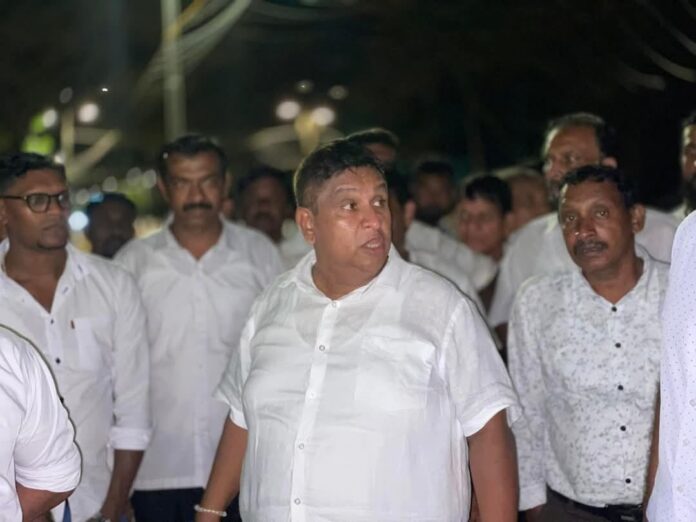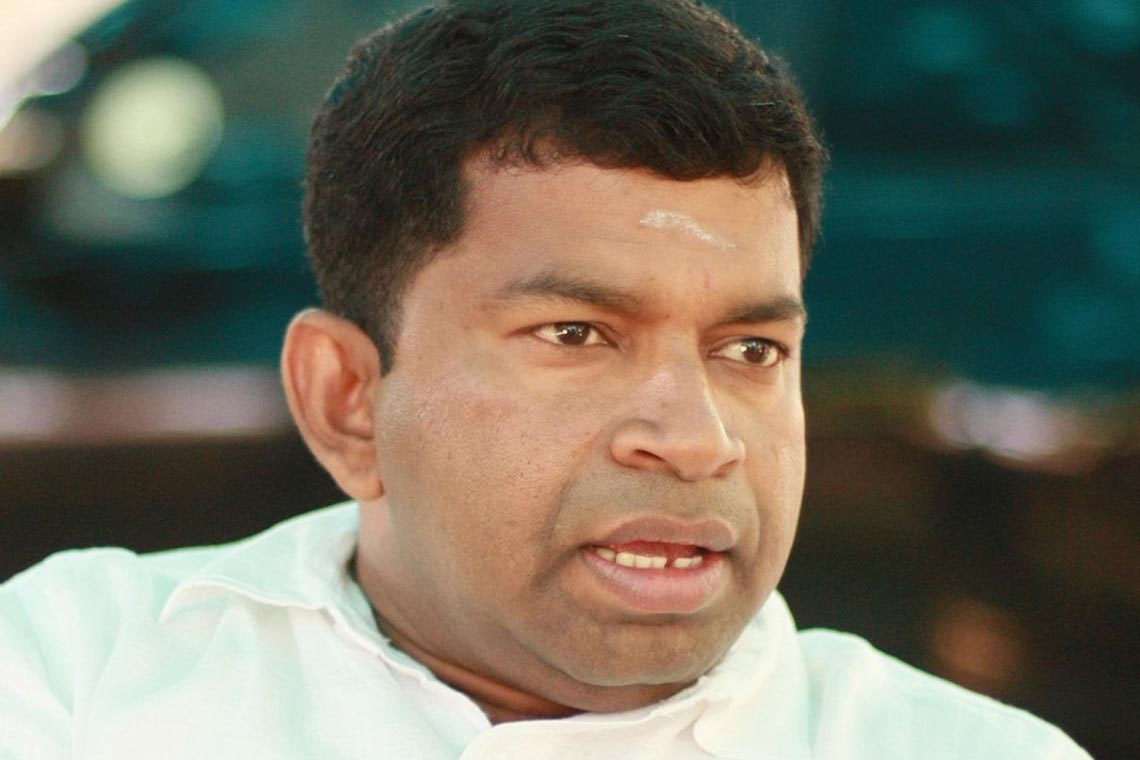By Kassapa
The news these days is filled with stories from various courts of politicians being indicted, detained and sentenced on corruption charges. This would be in keeping with the Jathika Jana Balavegaya (JJB) government’s pledge to root out corruption. Is this finally happening or will it all end like it did during the ‘yahapalanaya’ regime, with lots of talk and little action?
Last week saw Chamara Sampath Dassanayake being charged with corruption by the Commission to Investigate Allegations of Bribery or Corruption (CIABOC). Dassanayake, one of a handful of opposition politicians returned to Parliament from a party other than the Samagi Jana Balavegaya (SJB), was initially refused bail and detained. The allegation against him is that, when he was Chief Minister of the Uva Province, he transferred funds granted from a bank for a project to an account of his choice rather than to the Council’s account. It is also alleged that he withdrew fixed deposits prematurely from a bank that refused to grant funds for his project, incurring losses to the state.
Also last week, a more definitive verdict was given against former Chief Minister of the North Central Province, S.M. Ranjith and his Private Secretary (who happens to be former minister S.M. Chandrasena’s wife) for misusing fuel allocations, running into millions of rupees. They were both given a sentence of rigorous imprisonment for sixteen years.
Former State Minister Sathasivam Viyalendran was also arrested on charges of soliciting a bribe of Rs. 1.5 million from a businessman to issue a permit for sand mining.
Meanwhile, Yoshitha Rajapaksa, second son of former President Mahinda Rajapaksa and his grandmother Daisy Forrest Wickremesinghe were also indicted last week under the Prevention of Money Laundering Act for transactions amounting to Rs. 73 million.
With news of all these court decisions and orders trickling in, has the government finally got its act together in its promise to root out bribery and corruption among politicians? Or, are these isolated events that convey that impression while the really corrupt still roam scot-free?
Critics of the government note that the allegations against both S.M. Ranjith and Chamara Sampath Dassanayake have been longstanding and were not cases initiated by this government. This is true. However, it is to be noted that the original complaint against Dassanayake was made by Samantha Vidyarathna, currently a minister in the government.
Advocates for the government meanwhile claim that, under the JJB, institutions such as the CIABOC and the Attorney General’s Department as well as the Police and the judiciary have been given a free hand and are acting independently as they are free from political interference. Although not related to corruption (but related to gross abuse of power), would the arrest, detention and prosecution of suspended Inspector General of Police Deshabandu Tennakoon have occurred under a Rajapaksa or Ranil Wickremesinghe Presidency, they ask. The answer is, most likely not. So, there is some merit in the argument that the government has made a difference to the rule of law and order.
It is also to be noted that previously, under the ‘yahapalanaya’ regime, many cases filed by the CIABOC collapsed in court on technicalities. These included basic procedural flaws such as the plaint not having the signatures of all three commissioners at CIABOC. This led to accused being ‘acquitted and discharged’ by courts which did not have any choice, under the circumstances.
Not only did this result in many accused being discharged, it also allowed them to parade themselves before the media saying that they have been cleared by courts because they had done nothing wrong and suggesting that the charges against them were part of a political witch hunt.
In this context, last week’s comments by the new CIABOC Director General Ranga Dissanayake are enlightening. Dissanayake earned the respect and admiration of colleagues and critics alike when he served as a Magistrate and High Court Judge. Dissanayake said that the question was, if previous cases were dismissed because of technical errors, why weren’t attempts made to rectify those simple mistakes and re-file those cases?
This suggests that the ‘yahapalanaya’ government- or, at least, some powerful personalities within that government- was more interested in creating an illusion of prosecuting the corrupt but did not have real intent to do so. Subsequent events, when that administration’s Prime Minister, Ranil Wickremesinghe, became President with the blessings of the Sri Lanka Podujana Peramuna (SLPP) dominated by the Rajapaksa family support this narrative.
The JJB should have no such qualms. In fact, the very survival of the JJB government depends on whether it is able to fulfil its pledge of putting the corrupt behind bars and thereby change the political culture of the country. That was the core expectation of the vast majority of people who voted them into office- and not to perform an economic miracle overnight.
CIABOC Director General Dissanayake has emphasised that he would ensure that his organisation would do its best and observed that even officials of the present administration will face prosecution as a result. He did lament the lack of resources though, citing this as a reason for the slow pace of prosecutions.
This week, President Dissanayake unveiled the ‘National Anti-Corruption Plan” for the next five years and made a hard-hitting speech hinting that officials will be held accountable for their lapses. What needs to follow is actions that match these words.
There is indeed a sense that the government is big on promises and rhetoric but quite thin on actual results. This applies to issues related to corruption as well. The public know that successful prosecutions for corruption charges take time, but they are also aware that when court cases drag on for too long, justice delayed becomes justice denied, as it did with the ‘yahapalanaya’ regime because a regime change intervenes and the crooks are let off the hook yet again.
Also concerning for the JJB are the recent misdemeanours attributed to the Police. The death of suspects while being taken to reveal the location of weapons, the death of a youth in custody and the assault of another and his subsequent alleged abduction from hospital all suggest that the government has failed to rein in the Police, even thoughts the reigns of government has changed. This does not augur well for the JJB because ultimately, any Police brutality is considered to be a reflection of the government in office.
The likes of Ranjith and Dassanayake are small fry but important battles in the war against corruption. We hope the government realises that wining the odd battle is not the end of the war.



 Logging you in...
Logging you in... Loading IntenseDebate Comments...
Loading IntenseDebate Comments...

